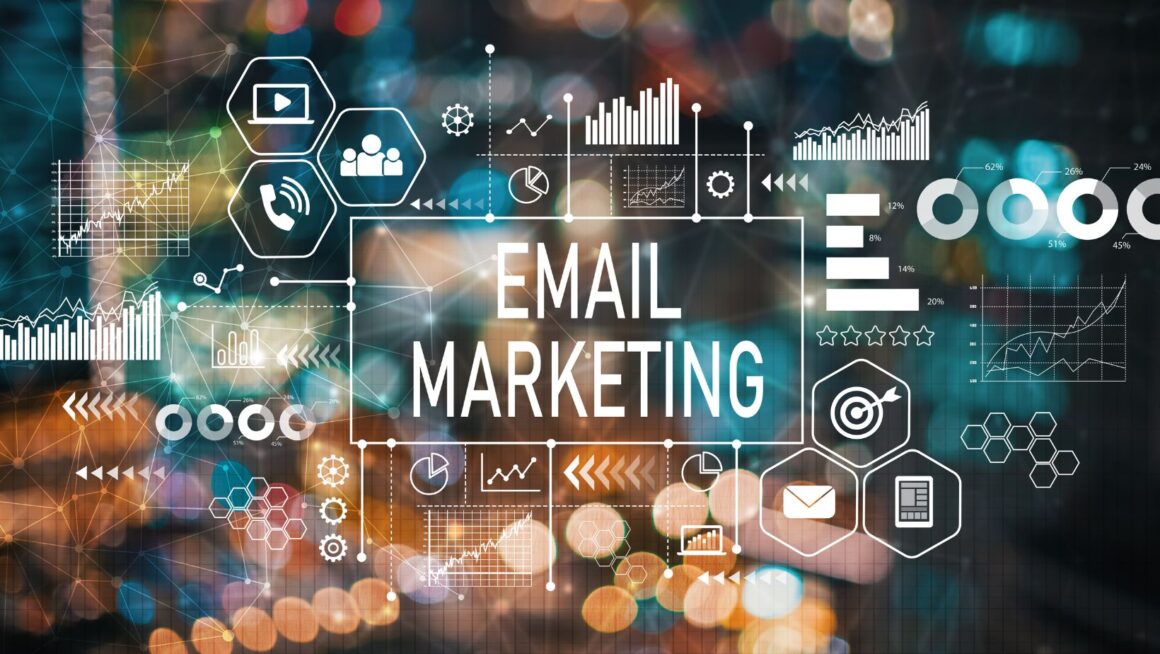Email marketing remains one of the most powerful tools in a marketer’s toolkit. With billions of emails sent daily, ensuring your messages reach their intended audience without being mistaken for spam or phishing attempts is critical. One often-overlooked element of email deliverability is the implementation and verification of Brand Indicators for Message Identification (BIMI) records. While it might seem like a niche concern, serious email marketers understand the importance of treating BIMI record checking as a core task in the ongoing effort to enhance email deliverability. In this article, we’ll explore why BIMI is vital for email marketers and how checking BIMI records can significantly impact email performance.
The Importance of Email Deliverability in Marketing
Email deliverability refers to the ability of an email to land in the inbox of the intended recipient, rather than being filtered into spam or junk folders. For email marketers, the difference between inbox placement and being relegated to the spam folder can be the difference between a successful campaign and a missed opportunity. Research has consistently shown that emails sent from trusted sources are more likely to be opened, read, and engaged with. In fact, emails that pass authentication checks like SPF (Sender Policy Framework), DKIM (DomainKeys Identified Mail), and DMARC (Domain-based Message Authentication, Reporting & Conformance) are far less likely to be flagged as spam.
In this context, BIMI has emerged as an important tool for email marketers to improve deliverability. BIMI is a standard that allows brands to display their logo next to their email in the inbox, signaling to recipients that the email is legitimate and from a trusted sender. But more than just a branding tool, BIMI also works in conjunction with email authentication protocols to enhance the credibility and trustworthiness of the sender’s domain. Without proper BIMI configuration and checking, email marketers risk losing out on the deliverability benefits it offers.
What is BIMI?
BIMI (Brand Indicators for Message Identification) is a specification that allows brands to display their logo alongside their email messages in participating email clients. When an email passes certain authentication checks (like SPF, DKIM, and DMARC), the email service provider can verify that the sender’s domain is legitimate and authorized to send the email. As a result, the recipient sees the brand’s logo next to the email, reinforcing brand identity and building trust.
To take advantage of BIMI, marketers must ensure that their email authentication protocols are properly set up. Specifically, BIMI requires that a sender’s domain is aligned with DMARC. This means that the domain must pass both SPF and DKIM checks. Only after these checks are successfully passed will BIMI allow the logo to be displayed in the recipient’s inbox.
For many marketers, BIMI may seem like a “nice-to-have” feature. However, its benefits for email deliverability and brand recognition make it an essential component of a comprehensive email strategy.
BIMI and Email Authentication: A Symbiotic Relationship
At the core of BIMI’s function lies email authentication. BIMI works with existing email authentication standards such as DMARC, SPF, and DKIM. These protocols ensure that the sender’s domain is legitimate, reducing the chances that emails will be classified as spam or phishing attempts.
- SPF ensures that the sending server is authorized to send emails on behalf of the domain.
- DKIM verifies that the content of the email has not been tampered with in transit.
- DMARC provides a policy for how to handle unauthenticated emails, helping to prevent fraudulent emails from reaching recipients.
A properly configured DMARC record is a prerequisite for BIMI implementation. Without it, BIMI cannot function, and email marketers miss out on the trust and visibility that BIMI offers. Furthermore, BIMI cannot be activated without a DMARC policy of “quarantine” or “reject,” which enhances the overall security posture of an email domain.
Thus, checking BIMI records regularly is a critical task for email marketers. They must ensure that their domain is not only aligned with authentication standards but that the BIMI record is correctly configured to display their logo in supported email clients. Using the BIMI Record Checker by Mimecast can help verify proper setup and maintain brand visibility across email platforms.
The Role of BIMI in Improving Deliverability

Deliverability is the primary concern for most email marketers. Without a strong inbox placement, even the best-crafted marketing email can go unnoticed. By enabling BIMI, email marketers can enhance their email deliverability in several ways:
- Increased Trust and Recognition: When recipients see a brand’s logo next to an email in their inbox, they are more likely to trust that the email is legitimate. According to studies, consumers are far more likely to engage with emails that display a verified logo. This increases open rates and reduces the chances of emails being ignored or marked as spam.
- Enhanced Brand Visibility: BIMI offers a valuable opportunity for email marketers to enhance brand recognition. The more frequently recipients see a familiar logo in their inbox, the more likely they are to develop trust in the sender. This, in turn, leads to better engagement and stronger brand recall.
- Improved Sender Reputation: BIMI works hand-in-hand with DMARC, which is an email authentication protocol that helps improve sender reputation. By passing DMARC checks and displaying a verified logo via BIMI, email marketers send a signal to email providers that they are a trusted sender. This helps improve their overall sender reputation, which is an important factor in email deliverability.
- Higher Engagement and Lower Bounce Rates: Email clients that display BIMI logos can help reduce bounce rates, as users are more likely to trust emails from authenticated senders. This translates into higher engagement rates, as recipients are more inclined to open and interact with emails from a trusted source.
Mimecast’s Role in Enhancing Email Security and Deliverability
Mimecast, a leader in cloud-based email security, plays a critical role in helping email marketers ensure their messages are secure and delivered correctly. By providing advanced threat protection, Mimecast helps to safeguard against phishing, malware, and spoofing attacks, which can harm a brand’s reputation and affect email deliverability.
In addition to email security, Mimecast’s tools support email authentication protocols like DMARC, DKIM, and SPF. These protocols work hand-in-hand with BIMI to ensure that only legitimate emails from authenticated senders are allowed into the inbox. Mimecast’s tools can also help email marketers track and report on email authentication issues, ensuring that their domains are correctly configured for BIMI and other security standards. With Mimecast in place, marketers can monitor their email security and authentication status in real-time, reducing the risk of issues that could affect deliverability.
Checking BIMI Records: A Key Component of Deliverability Strategy
For email marketers who are serious about their deliverability strategy, checking BIMI records should be treated as a routine task. Failure to do so can result in missed opportunities for brand visibility and email engagement.
Regular BIMI Checking Helps:
- Ensure Proper Configuration: BIMI requires a properly configured DNS (Domain Name System) record. This record specifies where the brand logo is stored and helps email servers locate it when displaying emails. Marketers should verify that their BIMI record is accurate and up to date.
- Confirm Alignment with Authentication Protocols: A key requirement for BIMI is DMARC alignment. Email marketers need to regularly confirm that their domain’s DMARC policy is correctly configured and that SPF and DKIM records are properly aligned. Regular checks will ensure that BIMI can function as intended, boosting deliverability.
- Monitor Logo Display Across Platforms: While BIMI is supported by major email providers such as Gmail, Yahoo, and AOL, it’s essential to regularly check how logos appear across different platforms. This helps ensure that the brand logo is displayed consistently and correctly in recipient inboxes.
- Track Deliverability Metrics: By monitoring the impact of BIMI on open rates and engagement, email marketers can better understand the role of BIMI in their overall deliverability strategy. This data can be used to refine email campaigns and optimize future marketing efforts.
Mimecast and BIMI: A Powerful Combination for Deliverability and Security
By combining Mimecast’s email security tools with proper BIMI configuration, email marketers can strengthen both the security and deliverability of their email campaigns. Mimecast helps protect against advanced threats, while BIMI enhances trust and visibility, providing a comprehensive solution for email marketers who want to ensure their emails are delivered and trusted.
With Mimecast ensuring email security and BIMI bolstering email credibility, marketers can significantly enhance their email deliverability rates, improve brand recognition, and reduce the risk of their messages being flagged as spam.
Conclusion: BIMI as a Deliverability Essential
In today’s competitive email marketing landscape, every advantage counts. BIMI is more than just a branding tool; it’s an essential part of a comprehensive deliverability strategy. By ensuring that BIMI records are properly checked and configured, email marketers can improve trust, increase engagement, and boost their sender reputation. The ability to display a verified logo next to emails not only enhances brand recognition but also ensures better inbox placement, helping to safeguard against phishing attempts and improving email performance.
For serious email marketers, BIMI record checking is no longer optional. It’s a critical task that should be incorporated into every email campaign to maximize deliverability, engagement, and brand impact. With email authentication and BIMI working together, marketers can foster greater trust and drive more successful outcomes from their email marketing efforts. Adding Mimecast’s robust security measures ensures the entire email ecosystem is secure, helping brands maintain their integrity and optimize their marketing strategies.



